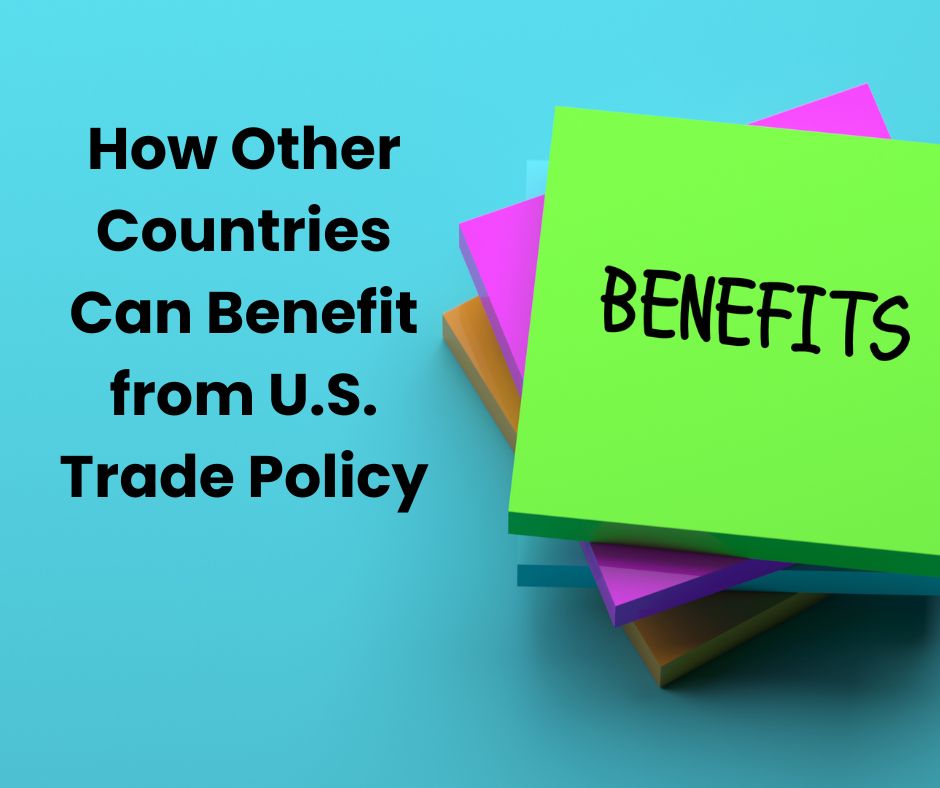How Other Countries Can Benefit from U.S. Trade Policy

The United States has long been a global economic powerhouse, influencing trade dynamics across multiple sectors. However, shifts in U.S. trade policy, economic instability, and regulatory changes create opportunities for other countries to capitalise on the evolving economic landscape. Key sectors where nations can benefit include the creative industries, education, innovation, foreign direct investment, and tourism.
1. Creative Industries: TV & Film Production
Hollywood remains a dominant force in global entertainment, but U.S. trade policies, rising production costs, and shifts in intellectual property regulations create opportunities for other countries. Nations with strong tax incentives, lower production costs, and favourable intellectual property laws can attract TV and film production that might otherwise have been based in the U.S. Countries such as Canada, the United Kingdom, and Australia have already benefited from this trend by offering attractive incentives and infrastructure for filmmakers.
2. Education Sector: Attracting Foreign Students
The United States has traditionally been a top destination for international students, but visa restrictions, high tuition costs, diversity opposition, increasing domestic insecurity, research funding restrictions and unpredictable immigration policies have made other nations more attractive. Countries like Canada, Australia, and Germany have capitalised on this by offering more favourable student visa policies, lower tuition fees, and post-graduation work opportunities. By streamlining immigration policies and enhancing educational infrastructure, other nations can position themselves as alternative hubs for global talent in higher education.
3. Innovation: Attracting the Brightest Scientists
U.S. restrictions on visas for skilled professionals, particularly in science, technology, engineering, and mathematics (STEM) fields, have created an opportunity for other countries to attract top-tier talent. The European Union, Canada, and China have increasingly invested in research and development, offering lucrative grants, residency programs, and work opportunities to scientists and innovators. By establishing innovation-friendly policies and facilitating collaboration between academia and industry, nations can benefit from a U.S. brain drain.
4. Foreign Direct Investment (FDI): A Shift Away from the U.S.
Historically, the U.S. has been a prime destination for foreign direct investment. However, economic uncertainty, policy shifts, and trade restrictions have made investors reconsider their options. Nations with stable economic policies, favourable corporate tax structures, and investor-friendly regulations can attract capital that might have previously flowed to the U.S. Countries such as Singapore, Switzerland, and the United Arab Emirates have positioned themselves as safe havens for investors seeking stability.
5. Tourism: Alternative Destinations for Global Travellers
The U.S. has traditionally been a top global tourist destination, but stricter visa policies, high costs, and safety concerns have pushed travellers to seek alternative locations. Countries that offer easy visa policies, affordable travel experiences, and unique cultural attractions stand to benefit. For instance, Southeast Asian nations, European destinations, and parts of Latin America have seen an uptick in tourism as travellers look for more accessible and cost-effective options.
Conclusion
While U.S. trade policy continues to shape global markets, changes in regulation and economic conditions create significant opportunities for other nations. By implementing strategic policies that attract investment, talent, and industries, countries can position themselves as viable alternatives in sectors where the U.S. has traditionally dominated. Through proactive policymaking, nations can leverage these opportunities to strengthen their economies and establish themselves as key players on the global stage.